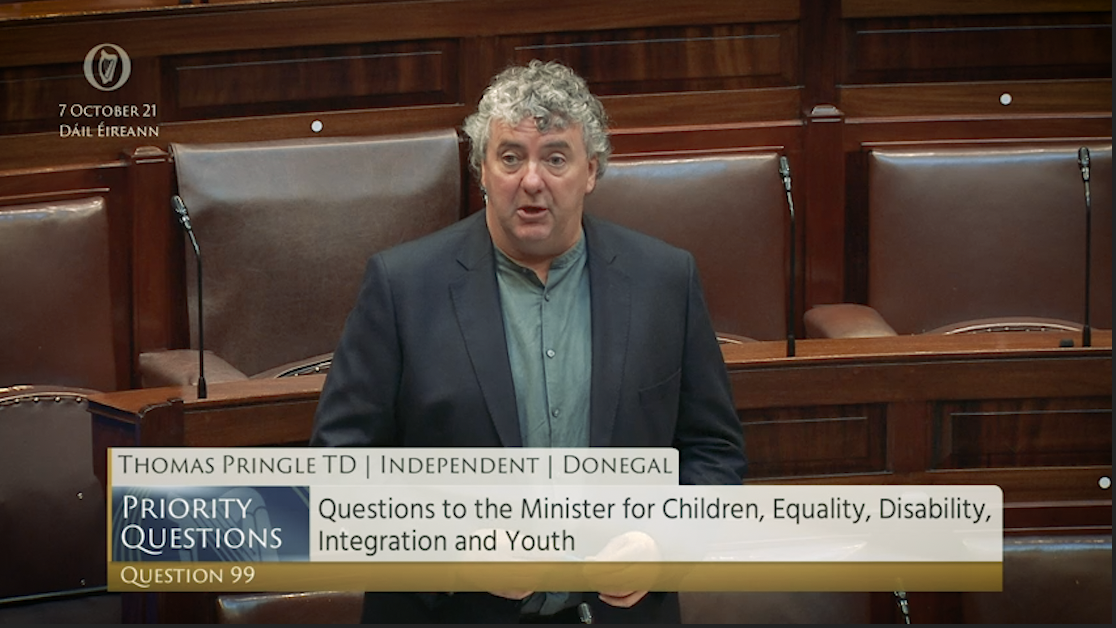- Pringle: We need a policy that recognises the importance of inshore fishing
- Pringle: Disabled people and carers face crisis of State neglect
- Pringle: Failed FF/FG housing policies forcing people to put their lives on hold
- Pringle welcomes Donegal council motion on Occupied Territories Bill: ‘We cannot stand by in the face of genocide’
Pringle: Government must ensure full participation in all aspects of political and social life for people with disabilities
- Updated: 7th October 2021

Independent TD for Donegal, Thomas Pringle, said Government must encourage and support full participation in all aspects of political and social life for people with disabilities, as he pointed out that nearly a quarter of people with disabilities have reported difficulty accessing their right to vote.
Speaking today in the Dáil during questions to the Minister for Children, Equality, Disability, Integration and Youth, Deputy Pringle said: “As you know, there are over 650,000 people in Ireland with a disability, and as one campaigner said, participation doesn’t mean their coming to a weekly meeting and telling their stories. That’s not what it should be about.
“We should be encouraging participation and full participation in all aspects of political and social life,” he said.
Deputy Pringle said he was glad to hear there was interdepartmental work being done on the issue, saying that was lacking in most aspects of Government.
He said: “I hope that continues because it’s vitally important to ensure that all voices are heard, especially for a sector that makes up such a large part of our society but is largely hidden and not seen and not noticed by us, unfortunately, as policy-makers as well.”
The deputy cited figures from the Joint Committee on Disability Matters that showed 24 per cent of people with disabilities have had difficulty accessing their ability to vote, 52 per cent of people with disabilities who have postal votes have had difficulty using them and 55 per cent of people with disabilities have had difficulty contacting a public representative.
Deputy Pringle said: “Of course I have a role, and all of us have a role, in making sure we’re more accessible to people and I’ll be working to make sure that is the case.
“But I think there’s a lot that the Government can do and I’m glad to see you are making progress on that but I think that needs to be strengthened, because we have to make politics accessible. And the UN Convention on the Rights of Persons with Disabilities outlines that as well.”
The deputy returned to the joint committee report, pointing out that a participant noted that the party whip system “further prevents many disabled people from speaking the truth when they disagree with policies that affect them.” He said people with disabilities “may fear they will get lost in the party system with no avenue to ensure their perspectives are fully considered.”
Deputy Pringle said: “Surely that’s a good indication that being an independent is the way to go.”



